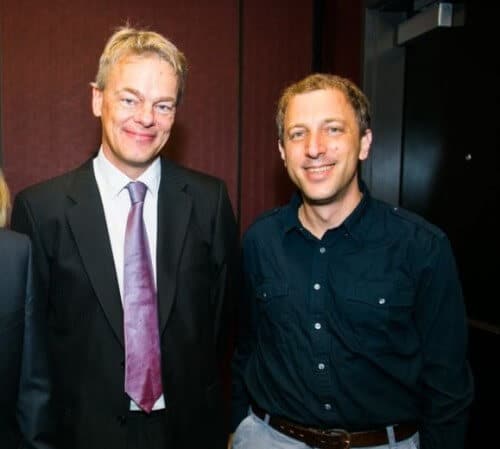Associate Professor Dori Derdikman, who completed his post-doctorate with two 2014 Nobel Prize winners in Medicine: "I founded the lab at the Technion in the spirit of their lab in Norway"

"They are humble people, who think simply but know how to solve complicated problems, and they know how to combine theoretical work with their experimental research - they are really great experimenters." This is what associate professor Dori Derdikman says about the couple May-Britt and Edward Moser, who will receive the Nobel Prize in Medicine for 2014 together with their British colleague, John O'Keefe. The three will receive the award for the discovery of the "biological GPS" that allows animals to orient themselves in space.
In the sixties, O'Keeffe discovered the place cells in the hippocampus that create the "internal map of the environment" in the brain. Thirty years later, the Moser couple discovered grid cells and their role in spatial orientation and spatial memory.
Associate Professor Dori Derdikman, a member of the Technion faculty, completed his post-doctorate with the Moser couple at the Center for Research in the Biology of Memory at the NTNU University in Trondheim, Norway. According to him, "It is a very dark and snowy area, but the Moser couple create a very pleasant family atmosphere there, which attracts many couples of researchers."
He began his post-doctorate in 2005 – the year the paper was published that won Edward and May-Britt the Nobel Prize now – and finished it in 2010. In those years, Associate Professor Derdikman focused on the characterization of grid cells, and in 2011 he joined the ranks of the Technion as a faculty member at the Rappaport Faculty of Medicine. Here he established the laboratory for memory and spatial perception.
"The brain is one of the most mysterious organs in the body," says Associate Professor Dardikman. "It is a biological tissue that contains billions of cells and is able to think and calculate, remember and determine how we behave. My specialization is orientation in space and spatio-temporal memory - that is, how the brain helps us organize space and remember it.
"I founded my laboratory here at the Technion in the spirit of the laboratory in Trondheim, and today I have two doctoral students, four master's students, a laboratory manager and a technician working with me. The laboratory is engaged in researching the behavior of the neuron network related to spatial orientation and episodic memory (memory of events in space and time). We record the activity of the cells, and also use the means of pharmacogenetics to stimulate and turn off certain areas of the brain. This way we can focus on the grid cells and their role as a XNUMXD neurological compass - a sort of GPS, which allows an animal (or a person) to orientate in space and remember it."
Associate Professor Dori Derdikman has won various awards and grants, including the Horowitz Fellowship for Complexity Sciences in his doctoral studies, and a personal research grant from the Israel Science Foundation. His research has been published in important scientific journals, and he edited the book Space, Time and Memory in the Hippocampal Formation published by Springer.
